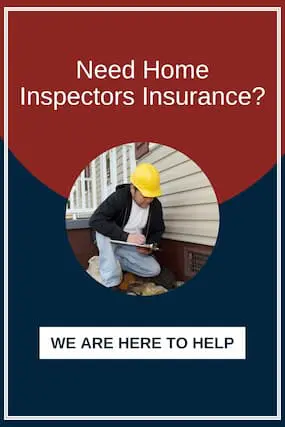We’ve all seen a movie with a character obsessed with cost-cutting or maximizing productivity. Some of us have even been lucky enough to watch this character work his micromanaging magic firsthand in our own workplaces. Risk management is another area where a lot of people turn a blind eye, assuming it’s only the domain of the office’s anal-compulsive mid-level executive.
Smart home inspectors know this isn’t true, though. The basic steps to manage risk during home inspections are important for preventing claims against you. Here are some risk management solutions to help home inspectors manage liability risks without serving as the inspiration for a character in an employee or coworker’s screenplay:
Tip 1: Use a Thorough Pre-Inspection Agreement
Collaborate with your attorney to create a pre-inspection agreement and have every client sign it prior to inspection. Define the aspects your inspection doesn’t cover or guarantee. Many home inspectors aren’t engineers, exterminators, or geologists; they can’t provide the same specific, in-depth inspections that specialists can. Your home inspectors don’t have X-ray vision (unless you are reading a screenplay) permitting them to see into walls and beneath the ground. Inspectors do have tools they can utilize, such as thermo cameras and testing; however, if something is not visual, it is usually not covered in an inspection. Make sure that your clients review and sign the agreement before proceeding with the inspection.
Tip 2: Create a Record of Inaccessible Areas
Managing risks is essential for home inspectors. When home inspectors cannot access areas that require inspection, it must be documented. Home inspectors should always go on the record—in writing—to say a certain area(s) were inaccessible and that access and subsequent inspection are necessary to ensure there isn’t concealed damage.
Tip 3: Communicate Clearly with Clients
Effective communication is essential to managing risk. Explain your findings straightforwardly and professionally. Avoid speculation and provide objective assessments. Encourage clients to ask questions and clarify any concerns they may have. Make sure every deficient condition and your recommendations are in your inspection summary report (including narrative and checklists) as well as any action items. Always follow all required local or required standards of practice for the reporting of deficiencies.
Tip 4: Recommend Specialists When Necessary
Home inspectors are generalists, not specialists. If you encounter an issue that requires further evaluation, managing risks is crucial. Recommend that your client consult a qualified specialist, such as a structural engineer, electrician, or plumber. Providing such referrals can help limit your liability.
Tip 5: Identifying Sewage Disposal Systems
Home inspectors are generally not required by law or even encouraged by association-sponsored standards of practice to identify whether sewage is handled privately or by the municipality. If possible, inspectors should ask whether the home is on private or public systems prior to the inspection, as this information is generally available as part of the listing. However, some buyers will not have this information, and some inspectors feel compelled to document the type of system. However, unless regulations or required standards of practive direct you otherwise, avoid this practice. If you feel compelled to document the type of system, be certain to provide a source for the information and recommend the buyer confirm the system type.
Tip 6: Get Visual Documentation of the Inspection
Whether it’s with a camera or a video camera, create a visual record of the home inspection, including written reports, photographs, and notes on what was inspected and obstructions if present. Incorporating a risk management strategy like this can help mitigate potential disputes. Far more often than not, such documentation from the time of inspection settles disputes in favor of the home inspector.
Tip 7: Don’t Admit Guilt
An apology or otherwise indicating you may have missed something during a home inspection can be perceived as an admission of guilt. If a client contacts you with a complaint, simply provide assurance that you’ll look into it immediately. Look back over your report and return to the home to evaluate the merits of the claim. Create a thorough record of the call and all your communications. Contact your Home inspection insurance company or legal counsel to put them on notice to ensure you are covered in the event the issue escalates.
Learn More About Home Inspectors Insurance
5 FAQs About Risk Management for Home Inspectors
What Are the Most Common Accidents That Happen to Inspectors?
The most common accidents that happen to home inspectors include falls, overfilling bathroom sinks or tubs, stepping through an attic ceiling, and broken automatic garage doors. Inspectors frequently climb ladders, walk on roofs, and navigate attics and crawl spaces, which increases the risk of falls. For more information, watch our YouTube video.
What System of a Home Is Usually Involved in the Claims Involving High Damages?
The system of a home usually involved in claims with high damages is the structure. Structural issues can lead to significant and costly damage if not properly inspected and maintained. Watch our full YouTube video for more information.
When Does a Complaint Become a Claim?
A complaint becomes a claim when the issue is formally documented and submitted to an insurance company or legal entity for resolution or compensation. This typically involves a more formal process where evidence is gathered, and the case is reviewed to determine liability and potential coverage. For more details, you can watch our full YouTube video.
Is an Inspection Agreement Enforceable if It Gets Signed After the Home Inspection?
An inspection agreement will not always be enforceable after the home inspection due to the specific laws and regulations in your state. The best practice is to get it out to the client as soon as possible and make sure it is signed before you do any part of the inspection once so ever. For additional information, refer to our full discussion in our YouTube video.
Can a Home Inspector Who Has Just Been Sued Counter-Sue for Further Legal Fees?
Unfortunately, the short answer is no. In the United States, the actions depend on the specific circumstances of the case and the legal framework in the state. For a further detailed explanation, refer to our YouTube video.
Stay Protected with Insurance for Home Inspectors
Starting a business without a plan is risky, so don’t overlook a risk management strategy. Unexpected issues will come up, and having a solid plan ensures your business stays on course. A key part of managing risk is transferring it to a third party. Even if insurance isn’t required in your state, the risks are still present. Home inspectors should invest in General Liability Insurance and E&O Insurance for Home Inspectors to safeguard their business and reputation.



